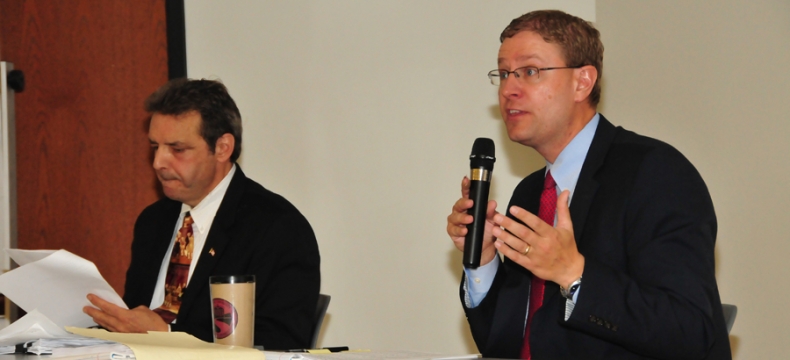
DSU Hosts Debate on Constitutional Interpretations
People interested in constitution law at DSU witnessed a debate Sept. 28 on the issue whether the country’s foremost guiding document should be judicially interpreted through an “originalism” philosophy or as a “living document.
Held in the Longwood Auditorium in the Bank of America Building, the debate event was sponsored by the DSU Law Studies Program and the Intercollegiate Studies Institute as part of Constitution and Citizenship Day.
The debate pitted Dr. Lee J. Strang, a John W. Stoepler Professor of Law and Values from the University of Toledo College of Law, against Dr. Sam Hoff, a George Washington Distinguished Professor of History and Political Science, and the director of the DSU Law Studies Program.
Dr. Strang argued on behalf of the originalism philosophy, which holds that the interpretations of the U.S. Constitution should be based on what reasonable persons living at the time of its 1788 adoption would have understood the ordinary meaning of the text to be.
Dr. Hoff argued on behalf of the living document position, which holds that it has a dynamic meaning in which contemporaneous society should be taken into account when interpreting key constitutional phrases.
Dr. Strang gave some background on how originalism operates in practice, and then argued that the justifications for originalism are popular sovereignty, good consequences, natural rights and human flourishing.
Dr. Hoff noted that that many parts of the U.S. Constitution are vague, producing multiple meanings and interpretations. He argued that the resulting constitution could have been a conscious effort by white property owners to create a government favoring their interests.
During their debate, Dr. Strang and Dr. Hoff applied their arguments to the contemporary issues of same-sex marriage, gun control and abortion.

